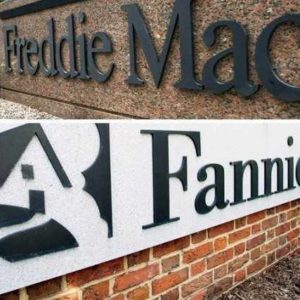It’s been 10 years since Fannie Mae and Freddie Mac, government-sponsored enterprises (GSEs), entered conservatorship and, as of today, there are no set plans in action to unwind them.
The longer they sit in conservatorship, the more taxpayers must pay.
For years, Fannie and Freddie have continued to push the boundaries of their mission and, even after the 2008 bailout and increased government scrutiny, they continue to violate their charters — a systemic problem that’s been continuing since the 1980s.
But this isn’t new. In May 1987, I wrote an op-ed in The Dallas Morning News criticizing GSEs for straying away from their initial affordable housing mission. In that piece, I called on the 100th Congress to “re-evaluate the need to expand the role of these federally sponsored housing agencies.” And here we are, more than 30 years later, still having the same conversation.
While GSEs remain in conservatorship, taxpayers continue to pay for Fannie and Freddie’s bailout — and extravagances. As recently as February 2018, Fannie and Freddie required an additional $4 billion infusion of taxpayer cash, bringing the total bailout cost to more than $190 billion. Despite this monetary assistance, though, GSEs continue to spend recklessly. Fannie Mae just constructed new headquarters that cost $700 million. Both of these wards of the state redundantly are spending significant amounts on state-of-the-art technology — with which community banks and other private lenders cannot compete — only contributing to GSEs dominant market share.
Additionally, as I outlined in an August letter to FHFA Director Mel Watt, GSEs have ventured into new activities and product offerings that have raised questions regarding their proper role in the market. Examples include the integrated mortgage insurance, lines of credit to non-banks and lobbying members of Congress. The letter asked specific questions related to each of these oversight infringements. I received a response from the director in September; however, I still seek additional clarification to some insufficient answers.
This week the House Financial Services Committee is holding a hearing with the FHFA director Inspector General Laura Wertheimer as well as the CEOs of Fannie Mae and Freddie Mac. I look forward to obtaining more responsive answers.
Financial Services Committee Chairman Jeb Hensarling, R-Texas, has long been an advocate for housing finance reform. Though he will be retiring at the end of this Congress, Hensarling continues to be a leader in this arena and recently proposed bipartisan legislation with Congressman John Delaney, D-Maryland.
His legislation offers improvements to the current housing finance model by increasing liquidity and lowering systems cost. I am hopeful that we will see action in both the House and Senate that promotes meaningful housing finance reform using Hensarling’s draft ideas as inspiration.
Fannie and Freddie continue to push the envelope on what is allowed per the guidelines of their charter. This has only hurt taxpayers while continuing to hinder the private sector. It falls upon Congress, as I’ve been saying for over 30 years, to ensure the GSEs are executing their mission within the confines of their charter.
I urge my fellow colleagues in the House Financial Services Committee to work to obtain the answers we need and that together we can craft a proposal to have an effective secondary mortgage market that benefit homebuyers, taxpayers and the financial industry.

